Ideally, a trip to the grocery store should be uneventful. If the shop has everything you need, you can get in and out without waiting in a long line and you’re on your way home before you know it, that’s a successful trip. But unfortunately, we never know what kinds of people we’ll encounter when shopping.
One customer recently reached out to the Entitled People subreddit detailing their bizarre experience with a woman who tried to steal their wheelchair at the grocery store. Below, you’ll find the full saga, as well as some of the replies amused readers shared.
This person was minding their own business grocery shopping when another customer decided she was entitled to their wheelchair
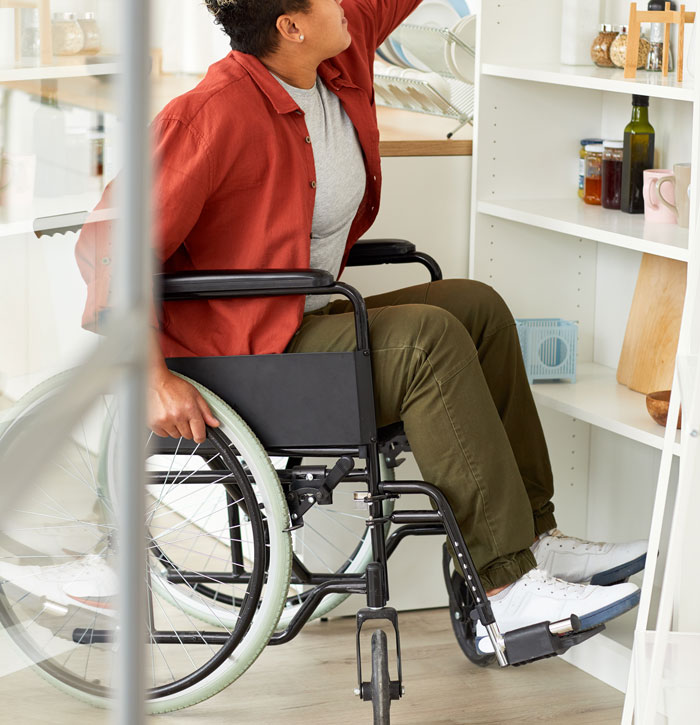
Image credits: AnnaStills / Envato Elements (not the actual photo)
But they certainly weren’t going to give it up without a fight


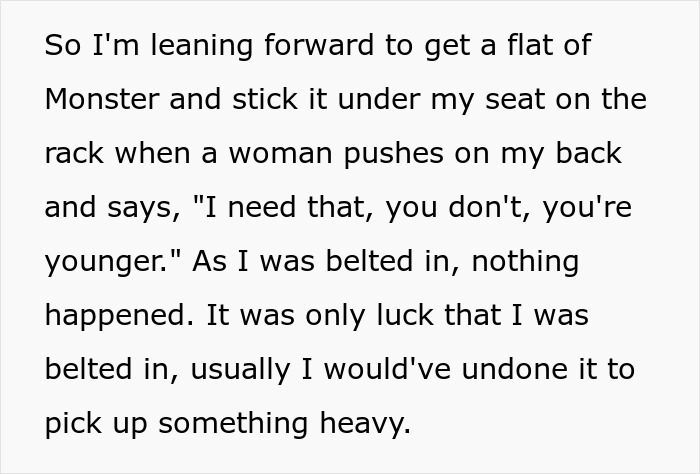

Image credits: Nashua Volquez-Young / Pexels (not the actual photo)


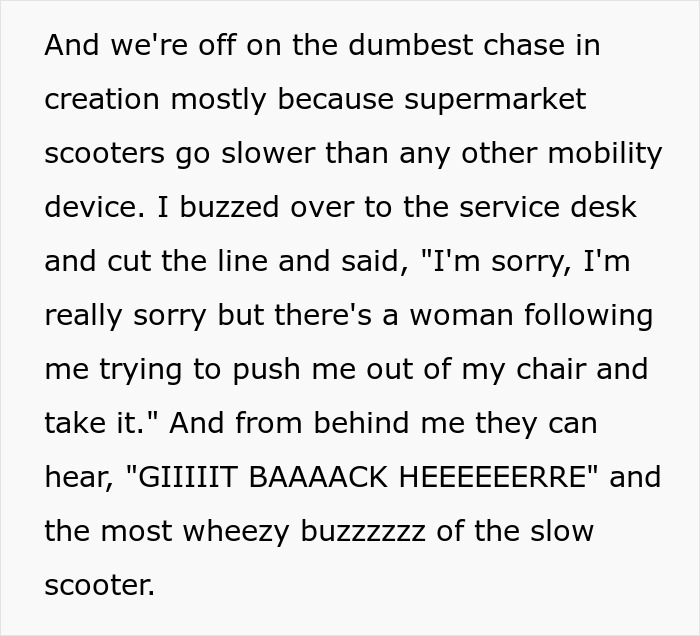
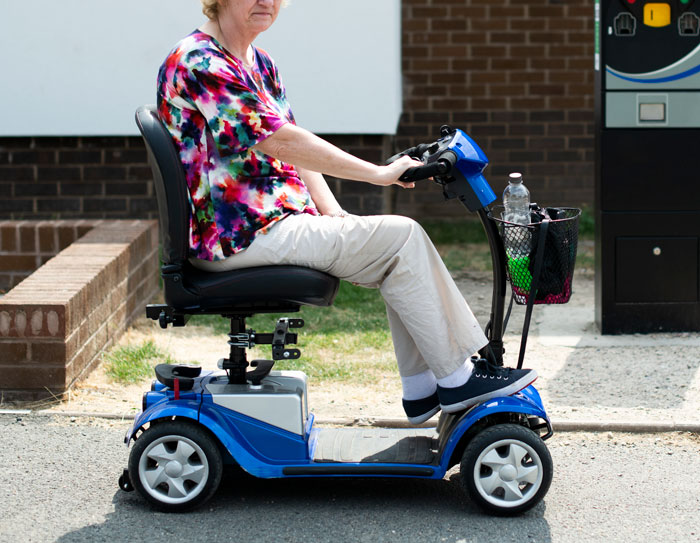
Image credits: Rawpixel / Envato Elements (not the actual photo)

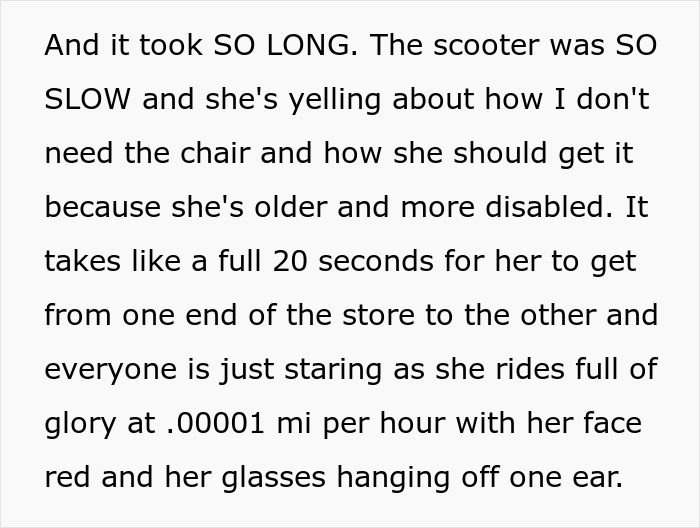
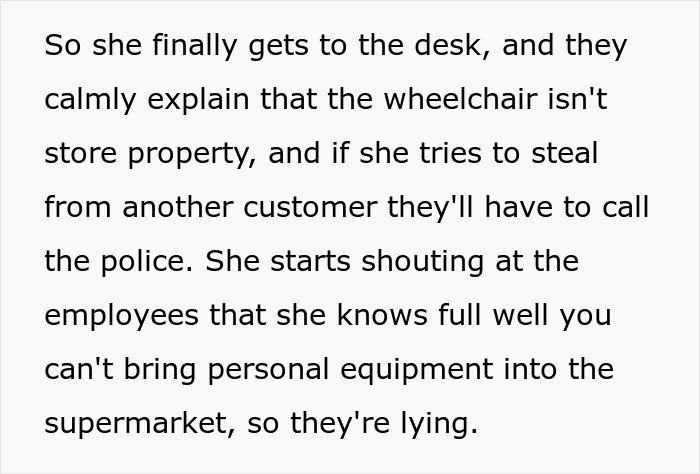
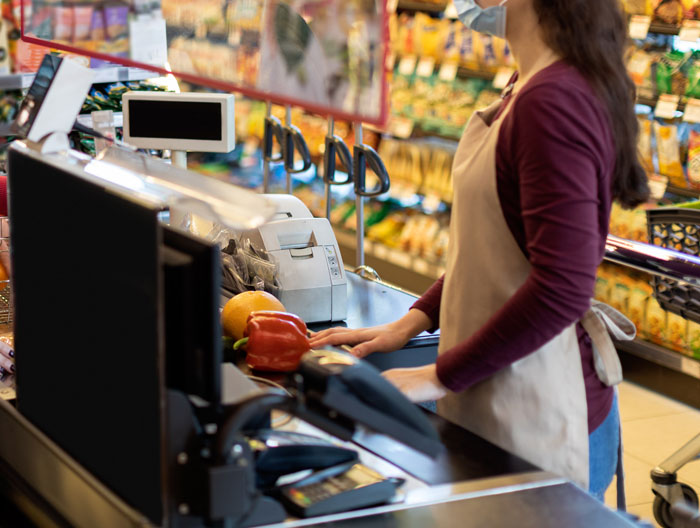
Image credits: Prostock-studio / Envato Elements (not the actual photo)




Image credits: OtherwiseDrama5374
Later, the OP answered some of the most commonly asked questions from readers
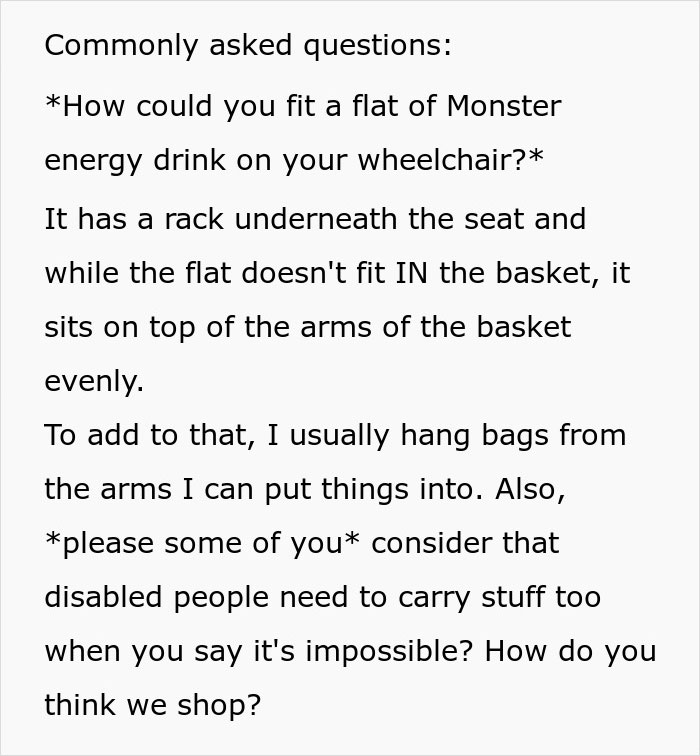





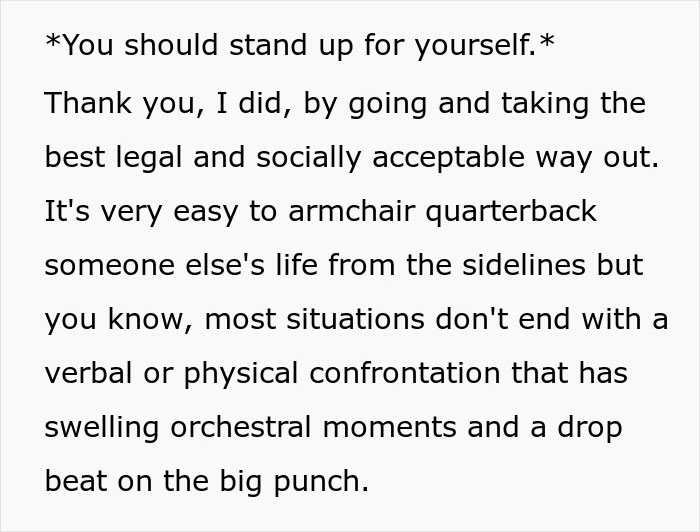

Approximately 39 million people in the United States have mobility disabilities
For those of us who are able-bodied and have no disabilities, it’s easy to take for granted just how simple completing everyday tasks like shopping is. It doesn’t matter where we park, we can walk to the entrance. And we don’t need to cross our fingers hoping for an available scooter or mobility device during peak hours. But we have to remember that plenty of our fellow shoppers don’t have it quite as easy.
According to Inclusive City Maker, about 39 million Americans have motor impairments, and physical impairments are actually the most common disabilities to have in the US. 13.7% of adults have difficulties walking, climbing stairs or getting around in general. And as you might expect, we’re more likely to develop disabilities as we age, as the Pew Research Center reports that nearly half of Americans over the age of 75 have a disability.
Having a disability can impact every aspect of a person’s life, including how much they earn from their job. The US Census Bureau reports that individuals with disabilities earned a median of only $28,438 in 2021, while their peers without any disabilities earned $40,948.
The Americans with Disabilities Act requires that all public spaces must be accessible
When it comes to wheelchair users, such as the person who shared this story on Reddit, they’re likely more common than you realize as well. The World Health Organization estimates that approximately 1% of the global population, or 80 million individuals, require wheelchairs to get around.
But Spin The Globe notes that you may not see wheelchair users often simply due to the lack of accessibility many cities have. If they cannot drive, wheelchair users might not live close enough to reliable public transit to take it on their own, and even calling a taxi can be a challenge if there’s no space for their chair.
In the US, the Americans with Disabilities Act (ADA) is supposed to guarantee that all public spaces are welcoming for individuals with disabilities, and it aims to prevent discrimination against those with disabilities in terms of employment, housing, public accommodations, education, transportation, communication, recreation, institutionalization, health services, voting, and access to public services. So a grocery store telling a wheelchair user that they could not bring their personal chair into the shop certainly wouldn’t fly.
Shoppers are entitled to bring their own chairs and mobility scooters inside stores
Mobility Department notes that there are sometimes restrictions as to the size of mobility scooters allowed inside stores, to ensure that they can maneuver through aisles, and not every store provides their own scooters. But if a customer brings one, they are allowed to take it inside.
Unfortunately, not every store is perfect when it comes to providing access, however. Apparently, only 80% of grocery stores in the US have accessible parking spaces, and only 35% have accessible shopping carts or baskets for those with mobility challenges.
Requiring a wheelchair or mobility scooter should not mean that a person’s trips to the grocery store need to become unnecessarily challenging. And it definitely shouldn’t mean that they might have to deal with random strangers harassing them in the shop. We would love to hear your thoughts on this story in the comments below, pandas. Then, if you’re interested in reading another Bored Panda article discussing similar issues, look no further than right here.
The OP also provided more information in the comments section

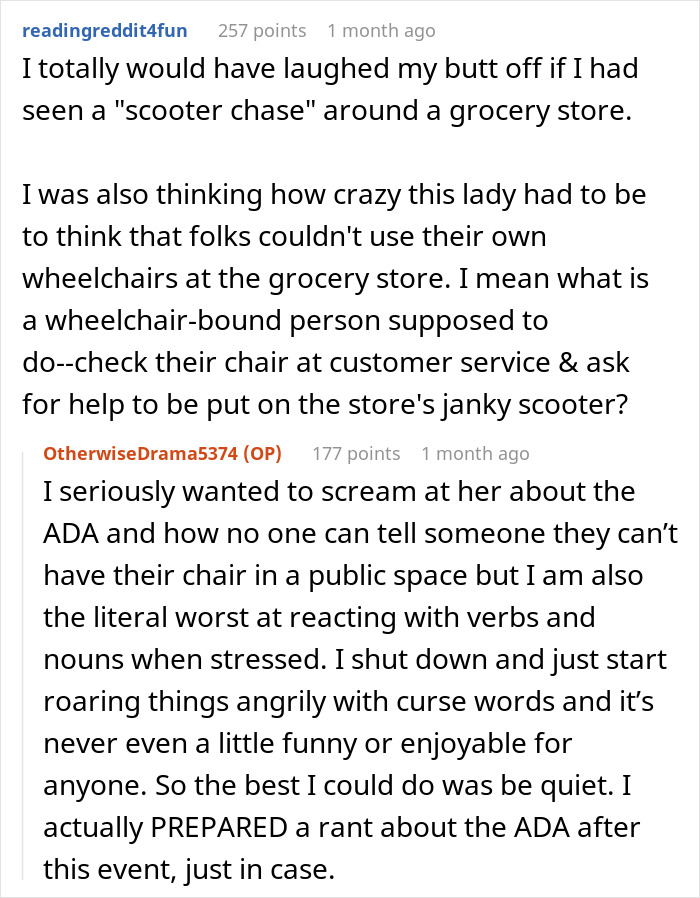

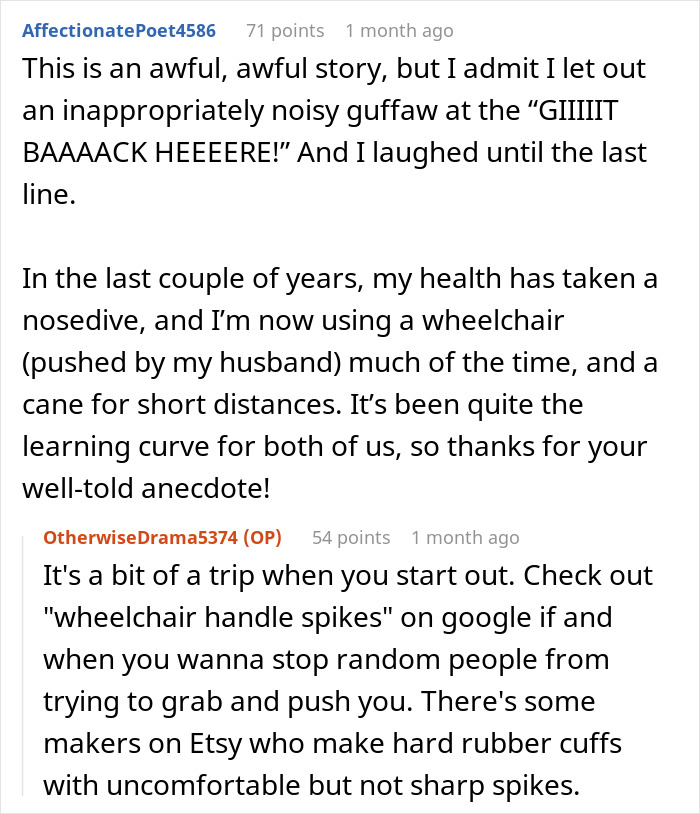


Readers applauded the shopper for standing their ground

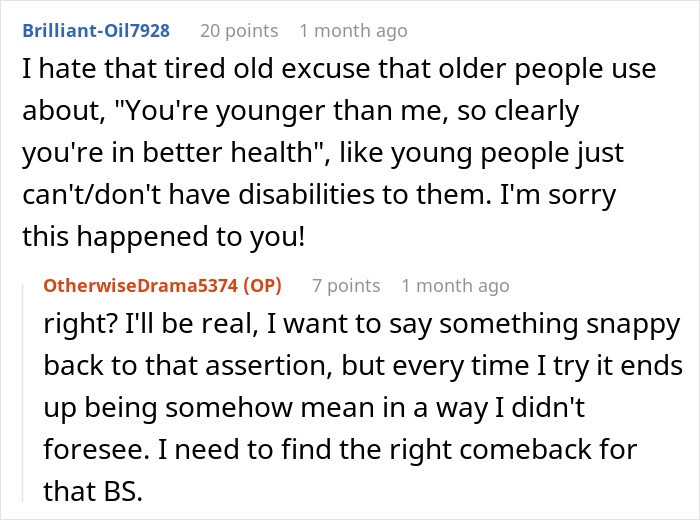




Some even had similar stories of their own to share














 English (US) ·
English (US) ·